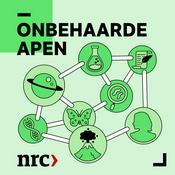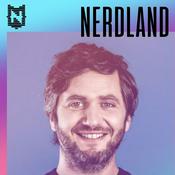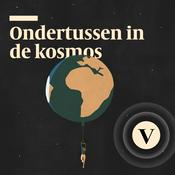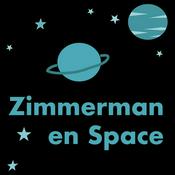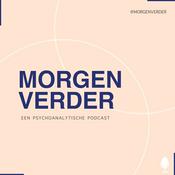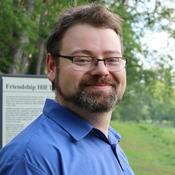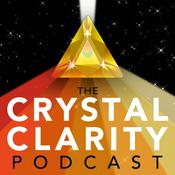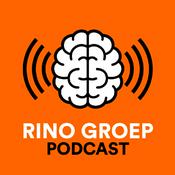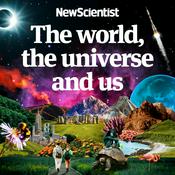27 afleveringen
- My guest today is Cass R. Sunstein, University Professor at Harvard and one of the most influential legal and political thinkers of our time. A prolific author of dozens of books and hundreds of academic articles, Cass has shaped debates in constitutional law, administrative law, behavioral economics, and public policy. He is regularly ranked amongst the very top of the most cited legal scholars alive. Cass also served as Administrator of the White House Office of Information and Regulatory Affairs under President Obama. He has advised governments and international organizations around the world, and was awarded the Holberg Prize, the equivalent of a Nobel in law and the humanities.
His latest book, On Liberalism: In Defense of Freedom, is a systematic defense of the liberal tradition at a moment when it is, as he shows, under unprecedented pressure. Our conversation is centered around his book. We begin with the urgency at the heart of the book: how liberalism confronts critiques from moral conservatives and egalitarian progressives alike, what it means to defend the liberal framework in an era of fragmentation, etc. We then turn to questions of scaling: does liberalism have internal patterns or institutional mechanisms that allow it to scale across diverse societies. We grapple with how the liberal tradition’s “big tent” of thinkers (from Mill and Hayek to Roosevelt’s Second Bill of Rights) impact liberalism ability to scale. We also explore how liberalism navigates technological change, expertise versus public accountability, and the pretence of knowledge. I hope you enjoy our discussion.
You can follow me on X (@ProfSchrepel) and BlueSky (@ProfSchrepel).
**
References:
On Liberalism (MIT Press, 2025) https://mitpress.mit.edu/9780262049771/on-liberalism/ - In the very first episode of Scaling Theory, I mentioned a few scientists who have shaped my understanding of the world. At the very top of that list is today’s guest: W. Brian Arthur.
Brian was born and raised in Belfast, Northern Ireland, and went on to become one of the most important figures of complexity science. Today, he is widely known as the father of complexity economics, a field that has transformed how we think about the evolution of modern economies.
His influence is remarkable. Brian’s work has been cited more than 58,000 times according to Google Scholar. He received numerous awards and recognition, such as being the inaugural laureate of the Lagrange Prize in Complexity Science, an award that many have described as complexity’s equivalent of the Nobel Prize. Brian has been, at age 37, the youngest endowed chair holder at Stanford University. He went on to work for my institutions, including the Santa Fe Institute, as we will talk about. On a personal note, I consider Brian a friend.
Now, what makes me especially happy to have Brian on the podcast is the unique perspective he brings on how economies form and evolve. His understanding of technology, how it emerges and scales, offers a lens that none others have developed. It is a way of seeing economic life as something alive. Be ready to be blown away.
You can follow me on X (@ProfSchrepel) and BlueSky (@ProfSchrepel).
**
References:
W. Brian Arthur, Competing Technologies, Increasing Returns, and Lock-In by Historical Events (1989) https://www.rochelleterman.com/ir/sites/default/files/arthur 1989.pdf
W. Brian Arthur, Foundations of Complexity Economics (2021) https://pmc.ncbi.nlm.nih.gov/articles/PMC7844781/pdf/42254_2020_Article_273.pdf
W. Brian Arthur, The Nature of Technology: What It Is and How It Evolves (2009)
W. Brian Arthur, Economics in Nouns and Verbs (2023) https://www.sciencedirect.com/science/article/pii/S0167268122003936
Thibault Schrepel, The Evolution of Economies, Technologies, and Other Institutions: Exploring W. Brian Arthur's Insights (2024) https://www.cambridge.org/core/services/aop-cambridge-core/content/view/8809341E2E94D76B8CCAB4A4DDACBC4C/S1744137424000067a.pdf/evolution_of_economies_technologies_and_other_institutions_exploring_w_brian_arthurs_insights.pdf - Welcome back to Scaling Theory. My guest today is Cristina Bicchieri, Professor of Social Thought and Comparative Ethics at the University of Pennsylvania, Director of the Center for Social Norms and Behavioral Dynamics, and one of the most influential scholars working on norm formation and collective behaviour. Her work is widely cited and, as we will talk about, has led to many field experiments and changes across the world.
In our conversation, Cristina and I talk about how norms emerge, scale, and sometimes collapse. We look at tipping signals, self-reinforcing equilibria, and why some norms spread through a population while others fail beyond small groups.
We then move to applied dimensions. Cristina takes us through the field experiments she has conducted and the patterns she has observed. Her work shows how norms and legal rules evolve together, which offers a fresh perspective on the forces that regulate and constrain much of what we do. We also talk about the challenges that appear when behaviours on digital platforms and AI ecosystems evolve faster than regulation. Finally, Cristina offers concrete guidance for policymakers and firms that want to design interventions grounded in norm theory.
I hope you will enjoy the conversation. Keep scaling, keep skating on thin ice.
You can follow me on X (@ProfSchrepel) and BlueSky (@ProfSchrepel). - Welcome back to Scaling Theory. My guest today is Robin Hanson, Associate Professor of economics at George Mason University. Robin has long been one of the most original thinkers on institutional design, collective intelligence, as explored in his books The Age of Em and The Elephant in the Brain. Across his career, he has pushed the boundaries of how societies can aggregate knowledge and make collective decisions when complexity scales faster than comprehension.
In this episode, Robin and I discuss how futarchy could scale that logic across our societies? As societies grow larger, representation, information, and incentives all begin to break down, and futarchy is one possible way to rebuild them. Robin and I talk about where this idea has been tested so far, what a real-world implementation might look like in a city or company, and why, despite its promise, futarchy hasn’t yet scaled.
Finally, we explore how new technologies like blockchain and AI might change the picture, whether they’ll make futarchy more viable, or perhaps even replace parts of it. And we look ahead to Robin’s vision from The Age of Em. When societies become unimaginably fast and complex, which human institutions survive, and which ones don’t?
You can follow me on X (@ProfSchrepel) and BlueSky (@ProfSchrepel). - This is the first solo episode of Scaling Theory, where I take a deep dive into the literature. Building on a working paper titled “Adaptive Regulation,” I explore why “future-proof” laws so often fail in the face of rapid technological change, and how complexity science can guide us toward rules that adapt to the things they regulate. Drawing on recent EU digital acts and voices from law, economics, and complexity theory, I sketch the contours of a regulatory system that scales.
You can follow me on X (@ProfSchrepel) and BlueSky (@ProfSchrepel).
References:
Schrepel, T., Adaptive Regulation (2025) https://papers.ssrn.com/sol3/papers.cfm?abstract_id=5416454
Ranchordás, S., & Van‘t Schip, M. (2020). Future-Proofing Legislation for the Digital Age. In Time, Law, and Change: An Interdisciplinary Study.
Colomo, P. I. (2022). Future-Proof Regulation against the Test of Time: The Evolution of European Telecommunications Regulation. Oxford Journal of Legal Studies, 42(4).
Chander, A. (2017). Future-proofing law. UC Davis Law Review.
Powell, W. W., & Snellman, K. (2004). The Knowledge Economy. Annual Review of Sociology, 30.
Perez, C. (2009). The Double Bubble at the Turn of the Century: Technological Roots and Structural Implications. Cambridge Journal of Economics, 33(4), 779–805.
Allen, D. W., Berg, C., & Potts, J. (2025). Institutional Acceleration: The Consequences of Technological Change in a Digital Economy. Cambridge University Press.
Colander, D., Holt, R. P. F., & Rosser, J. B. (2004). The Changing Face of Mainstream Economics. Review of Political Economy, 16(4).
Arthur, W. B. (2009). The Nature of Technology: What It Is and How It Evolves. New York: Free Press.
Buchanan, J. M., & Tullock, G. (1962). The Calculus of Consent: Logical Foundations of Constitutional Democracy. University of Michigan Press.
Sowell, T. (2007). A Conflict of Visions: Ideological Origins of Political Struggles.
West, G. (2017). Scale: The Universal Laws of Growth, Innovation, Sustainability, and the Pace of Life in Organisms, Cities, Economies, and Companies. Penguin Press.
Meer Wetenschap podcasts
Trending Wetenschap -podcasts
Over Scaling Theory
Scaling Theory is a podcast dedicated to the power laws behind the growth of companies, technologies, legal and living systems. The host, Dr. Thibault Schrepel, has a PhD in antitrust law and looks at the regulation of digital ecosystems through the lens of complexity theory. The podcast is hosted by the Network Law Review. It features scholarly discussions with select guests and deep dives into the academic literature.
Podcast websiteLuister naar Scaling Theory, NRC Onbehaarde Apen en vele andere podcasts van over de hele wereld met de radio.net-app
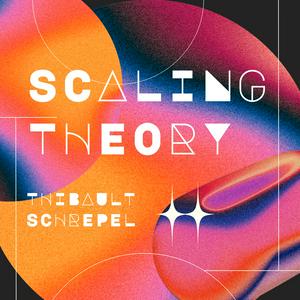
Ontvang de gratis radio.net app
- Zenders en podcasts om te bookmarken
- Streamen via Wi-Fi of Bluetooth
- Ondersteunt Carplay & Android Auto
- Veel andere app-functies
Ontvang de gratis radio.net app
- Zenders en podcasts om te bookmarken
- Streamen via Wi-Fi of Bluetooth
- Ondersteunt Carplay & Android Auto
- Veel andere app-functies


Scaling Theory
Scan de code,
download de app,
luisteren.
download de app,
luisteren.

